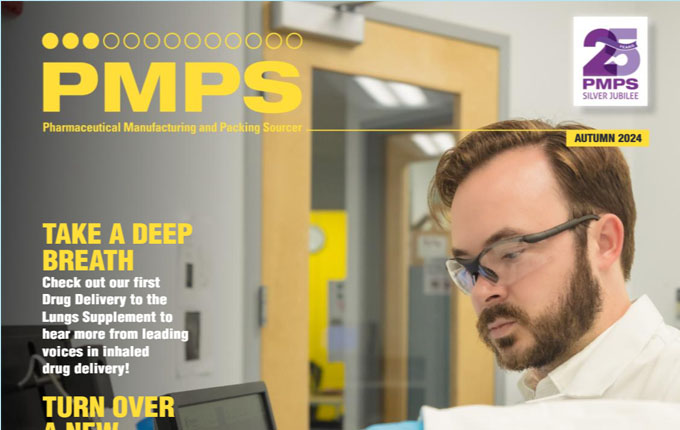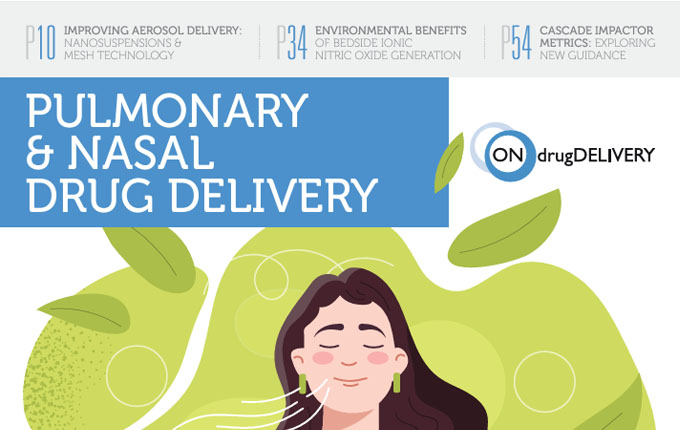Nasal drug delivery is interesting for its numerous benefits, including the ability to bypass first-pass metabolism, rapid drug absorption through the rich vascular network of the nasal mucosa, and ease of administration. These advantages make it an appealing route for both local and systemic drug delivery, covering a range of therapeutic areas from allergy treatments to vaccinations.
Understanding the anatomy of the nasal cavity is crucial for the development of effective nasal drug delivery systems. The presentation provides an in-depth review of the nasal cavity’s structure, focusing on the olfactory area, turbinates, and nasopharynx. The turbinates play a significant role in air filtration, humidification, and heating, impacting the deposition and absorption of nasally administered drugs. The olfactory region, situated at the top of the nasal cavity, is particularly relevant for targeting drugs to the brain, exploiting the direct connection between the nose and the central nervous system.
A critical aspect of developing nasal drug delivery systems is the ability to quantify drug deposition within the nasal cavity. The presentation covers various techniques used for this purpose, including gamma scintigraphy, computational fluid dynamics (CFD) modeling, and the use of nasal casts. Gamma scintigraphy provides real-time imaging of drug deposition, while CFD modeling offers insights into the flow dynamics and distribution patterns of nasal sprays. Nasal casts, however, emerge as a uniquely valuable tool for physically replicating the complex geometry of the nasal cavity, enabling detailed analysis of drug deposition patterns.
Nasal casts, such as Aeronose, Aptar Pharma’s Nasal Cast, are highlighted for their role in optimizing nasal drug delivery systems. These replicas of the human nasal cavity are instrumental in evaluating the performance of nasal sprays and powders, allowing for the assessment of factors such as spray angle, particle size distribution, and deposition efficiency. The presentation emphasizes the importance of considering patient-specific characteristics, including gender, ethnicity, and in vivo test conditions, when using nasal casts. However, it also acknowledges the limitations of nasal casts, such as their inability to replicate mucociliary clearance, an essential mechanism for removing particles from the nasal cavity.
The presentation also reviews recent data on the deposition of nasal formulations using advanced technologies like Aptar Pharma’s VP7 nasal drug delivery system and its Unidose powder technology. These technologies represent progress in the field, offering improved deposition patterns, enhanced bioavailability, and greater patient comfort. The use of nasal casts has been instrumental in the development and optimization of these systems, providing valuable insights into their performance before proceeding to in vivo studies.
To summarize, Nasal casts are a cost-effective and time-efficient alternative to in vivo studies for the development of nasal drug delivery systems. By facilitating detailed analysis of drug deposition patterns and allowing for the rapid iteration of design changes, nasal casts can accelerate the development of new treatments. The presentation concludes that while nasal casts have their limitations, their benefits in the context of nasal drug delivery development are undeniable, paving the way for innovative and effective therapeutic solutions.
This comprehensive overview encapsulates the essence of the presentation, underlining the pivotal role of nasal casts in advancing nasal drug delivery technologies. By offering a blend of theoretical knowledge and practical insights, the presentation contributes significantly to the ongoing evolution of drug delivery methods, promising enhanced patient care and novel treatment options.
Learn more about Aptar Pharma Expertise
in Nasal Drug Delivery
This Might Also Be of Interest

Overcoming Challenges in Preclinical Studies for Intranasal and Inhalation Programs
Webinars, Pharmaceutical, Innovation & Insights, Drug Delivery Innovations, Market Insights, Product Solutions

Optimising Preclinical Studies for Intranasal and Pulmonary Programmes
Publications, Pharmaceutical, Drug Delivery Innovations, Market Insights, Product Solutions
Targeted Aerosol Delivery to NALT Using BiVax Intranasal Atomizer
Publications, Pharmaceutical, Drug Delivery Innovations, Market Insights, Product Solutions

PureHale® & The Future of Fine Mist Dispensers for Upper Airway Treatments
Publications, Pharmaceutical, Product Solutions, Drug Delivery Innovations, Brand Differentiation, Market Insights

